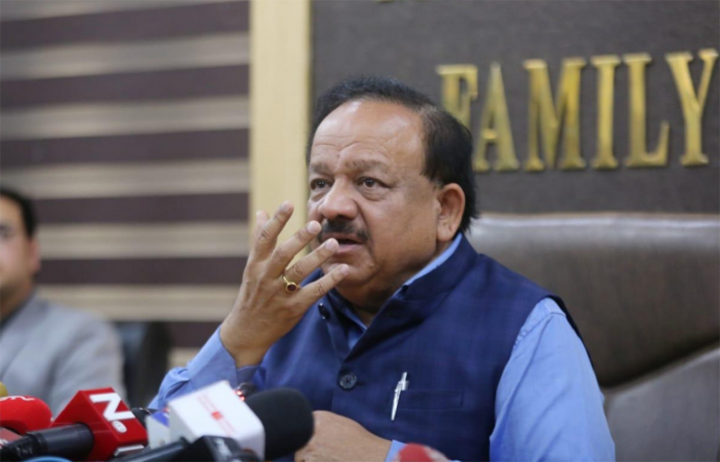
New Delhi, Dec 12: Union Health Minister Dr. Harsh Vardhan attended the 'Cancer Awareness Program' organised by the Centre for Indian studies-Kuwait via video conferencing on Friday and said there exists great scope for both countries to increase collaboration in the field of health and medicine.
Vardhan tweeted, Indian diaspora has been the torchbearer of humanitarian principles propagating our long-held belief - 'Whole World is One Family.'
"I was pleased to address members of our diaspora in Kuwait at the 'Cancer Awareness Program' organised by the Centre for Indian studies-Kuwait, via VC," he added.
"I appreciated the organisers for their noble endeavours which resonate with preachings of our ancient scriptures, the Upanishads, about a world free of illness with peace and prosperity prevailing all around," Vardhan tweeted.
Under the dynamic leadership of Prime Minister Narendra Modi, India has further strengthened its deep-rooted ties with Kuwait, the Union Health Minister stated.
"There is great scope for both countries to increase collaboration in the field of health and medicine," Vardhan tweeted.
"I expressed my heartfelt gratitude towards all the brave 'Corona Warriors' who have been at the forefront of the battle against COVID-19. With a vaccine expected to be within reach soon, I see a more resilient and united world emerging from this pandemic," he added.







Comments
Add new comment